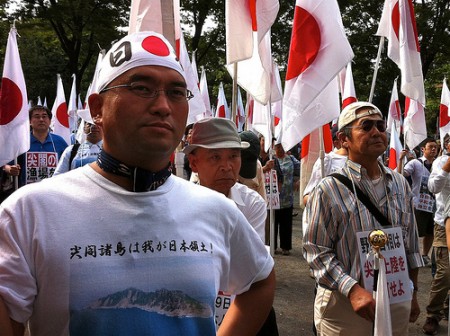
OSAKA – Japan is now confronting challenges at home and abroad that are as serious as any it has had to face since World War II’s end. Yet the Japanese public is displaying remarkable apathy. The country’s two major political parties, the governing Democratic Party of Japan (DPJ) and the Liberal Democratic Party (LDP) recently chose their leaders, yet ordinary Japanese responded with a collective shrug. But Japan’s political system is unlikely to remain a matter of popular indifference for much longer.
The DPJ first came to power in September 2009, with an ambitious program promising comprehensive administrative reform, no tax increases, and a freer hand in Japan’s alliance with the United States. But, owing to the party’s inexperience and incompetence at every level of policymaking – shortcomings that were compounded by the unprecedented devastation of the great earthquake of March 11, 2011 – the first two DPJ governments, under Yukio Hatoyama and Naoto Kan, ended with those pledges in tatters. Consequently, several dozen legislators, led by the perpetual rebel Ichiro Ozawa, defected from the DPJ, forming a new rump opposition party.

